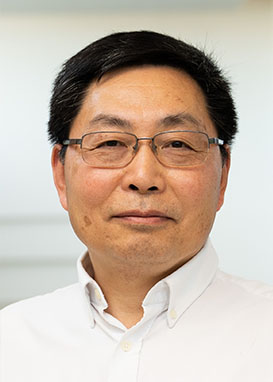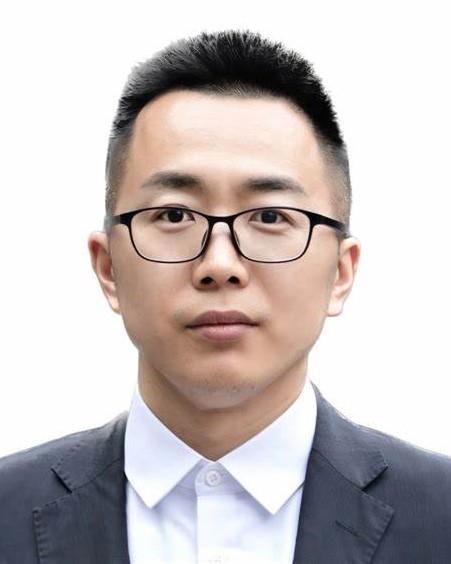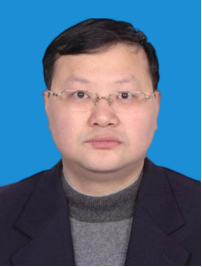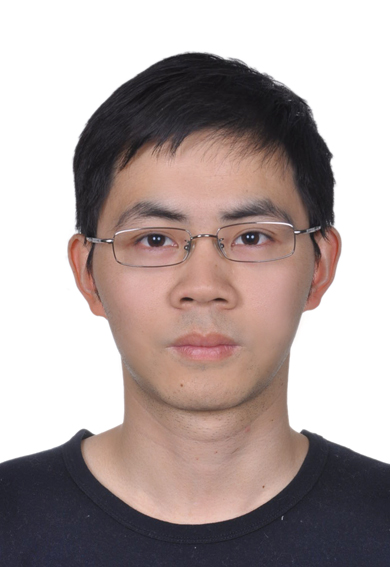

Prof. Zheng Hong (George) Zhu, York University, Canada
(Fellow of CAE, Fellow of EIC, Fellow of CSME, Fellow of ASME, Associate Fellow of AIAA, Senior Member of IEEE)
Biography: Dr. Zheng Hong (George) Zhu is a Professor and and Tier 1 York Research Chair in Space Technology in the Department of Mechanical Engineering at York University in Toronto, Canada. He is the founding Co-Director of Manufacturing Technology Entrepreneurship Centre, founding Director of Space Engineering Lab, and Directors of Smart Autonomous Robotic Technology for Space Exploration at the same university. He has also served as the Inaugural Academic Director of Research Commons in the Vice-President Research & Innovation Office (2019-2022), Chair of the Mechanical Engineering Department (2018-2019), and Director of the Space Engineering undergraduate program in the Department of Earth and Space Science and Engineering (2009-2012) at York University. His research interests include dynamics and control of tethered space systems, space robotics, computational mechanics and control, machine learning, 3D printing in space, and CubeSat. He has authored 210+ peer-reviewed journal papers and 180+ conference articles. Dr. Zhu is an elected member of International Academy of Astronautics, a College Member of the Royal Society of Canada, and the Fellows of the Canadian Academy of Canada, Engineering Institute of Canada, Canadian Society for Mechanical Engineering, and American Society of Mechanical Engineers. He is also an Associate Fellow of the American Institute of Aeronautics and Astronautics, and a Senior Member of IEEE. Dr. Zhu is the recipient of the 2024 Gold Medal and the 2019 Engineering Medal R&D from the Ontario Society of Professional Engineers, the 2024 Solid Mechanics Medal and the 2021 Robert W. Angus Medal from Canadian Society for Mechanical Engineering, and the 2022 President's Research Excellence Award from York University. Finally, Dr. Zhu is fretured in the 2024 Book, Canadians Who Innovate: The Trailblazers and Ideas That Are Changing the World.
Speech Title: Decentralized Collaborative Swarm for Active Space Debris Removal
Abstract: Ensuring the long-term sustainability of space operations requires innovative solutions to the growing challenge of orbital debris. This keynote introduces a swarm-based framework for autonomous robotic active debris removal (ADR) that replaces the conventional single, complex spacecraft with a network of small, resource-limited agents, specifically CubeSats and Nanosats, capable of cooperative debris capture and deorbit. Inspired by swarm intelligence observed in ant colonies and bird flocks, the proposed system implements a decentralized, behavior-based control architecture that enables autonomous self-organization, exploration, and coordinated encapsulation of tumbling, noncooperative debris targets. Each agent executes aggregation and flocking maneuvers to enclosure on the debris, while anti-flocking behavior ensures optimal spatial distribution for complete surface coverage and accurate shape reconstruction. Coordination is achieved through local communication and shared landmark observations, allowing synchronized capture actions without reliance on a centralized leader. This leaderless, modular architecture enhances fault tolerance, scalability, and robustness, while significantly reducing system complexity and mission cost. The presented approach represents a step change in ADR technology, offering a practical and scalable solution for maintaining a sustainable orbital environment.

Prof. Shunli Wang, Inner Mongolia University of Technology, China
Academician of Russian Academy of Natural Sciences, IET Fellow
Biography: Shunli Wang, Professor, Doctoral Supervisor, Executive Vice President of Smart Energy Storage Institute, Academic Dean of Electric Power College at Inner Mongolia University of Technology, Academician of the Russian Academy of Natural Sciences, RSA Fellow, IET Fellow, IEEE Senior Member, Academic Leader of National Electrical Safety & Quality Testing Center, Tianfu Qingcheng Scientific and Technological Talent, High-level Overseas Talent, Tianfu A Talents, Academic and Technical Leader of China Science and Technology City, Top 2% Worldwide Scientist.
Speech Title: Research and Application of Situation Awareness for Large scale Energy Storage Mechatronics in New Power Systems
Abstract: To be updated

Prof. Li Guo, Hunan University, China
Biography: Prof. Li Guo received his PhD at Xian Jiaotong University, China in 1992. He researched advanced machine tool with Prof. W.B.Rowe at Liverpool John Moores University, UK in 2003-2004, researched advanced materials grinding in airplane engine with Prof. Xun Chen at University of Nottingham UK in 2007 and researched advanced materials join in car body with Prof. S Jack Hu at University of Michigan, USA in 2014. Currently, he is a Doctoral/Master Supervisor at Hunan University, National Science and Technology Evaluation Expert, Academic Backbone of Hunan University, Science and Technology Experts from 15 provinces including the Ministry of Education and Hunan Province, Evaluation Expert for Science and Technology Talent Awards of China Association for Science and Technology, National Graduate Education Quality Monitoring Expert, Vice Chairman of Changsha Mechanical Engineering Society, Manager of Hunan Yuelu Mountain Industrial Innovation Center, etc. He has published more than 80 papers on Journals.
Speech Title: Research on Intelligent Acoustic Emission Monitoring in the Grinding of Ceramics and Superalloys
Abstract: This study investigates the thermal acoustic emission monitoring of superalloys and alumina ceramics using the short-time Fourier transform acoustic emission signal processing technique. It explores the relationship between acoustic emission signals and grinding forces, grinding temperatures, and grinding damage in high-speed grinding of engineering ceramics. Additionally, intelligent acoustic emission monitoring of wheel wear during cylindrical grinding of superalloys is conducted. Artificial intelligence and deep learning neural networks are applied for the intelligent acoustic emission monitoring of surface roughness in ceramic grinding. This research addresses key challenges in the intelligent acoustic emission monitoring of difficult-to-machine materials, specifically engineering ceramics and superalloys, during grinding.

Prof. Zipeng Wang, Beijing University of Technology, China
Biography: Zi-Peng Wang (Senior Member, lEEE) received the Ph.D. degree in control theory and control engineering from Beihang University, Beijing, China in 2017. From July 2017 to August 2022, he was an Associate Professor with the School of Electrical Engineering, U niversity of Jinan, Jinan, Shandong, China. In September 2022, he joined the Faculty of Information Technology, Beijing University of Technology, Beijing. He was a ResearchAssistant with the City University of Hong Kong for six months in 2016. From December 2019 to January 2020, he was a Postdoctoral Research Associate with Texas A&M University at Qatar, Doha, Qatar. His current research interests include robust control and filtering, fuzzy modeling and control, secure control, discontinuous control systems, networked control systems, distributed parameter systems, and neural networks. Dr. Wang serves as an Associate Editor/Editorial Board Member for the IEEE Transactions on Automation Science and Engineering , the IEEE Systems, Man, and Cybemetics Magazine, the Applied Soft Computing and the Neural Prcessing Letters.
Speech Title: Sampled-Data Fuzzy Control for Complex Dynamic Systems
Abstract: This speech focuses on complex dynamic systems based on three key scientific issues: T-S fuzzy modeling, stability and performance analysis, and sampled-data fuzzy controller design, with emphasis on introduction: 1. less conservatism sampled-data fuzzy control methods for nonlinear ODE/delayed ODE systems and applications; 2. sampled-data fuzzy control methods and applications for nonlinear PDE systems; 3. sampled-data fuzzy control methods and applications for nonlinear delayed PDE systems under multiple constraint conditions.